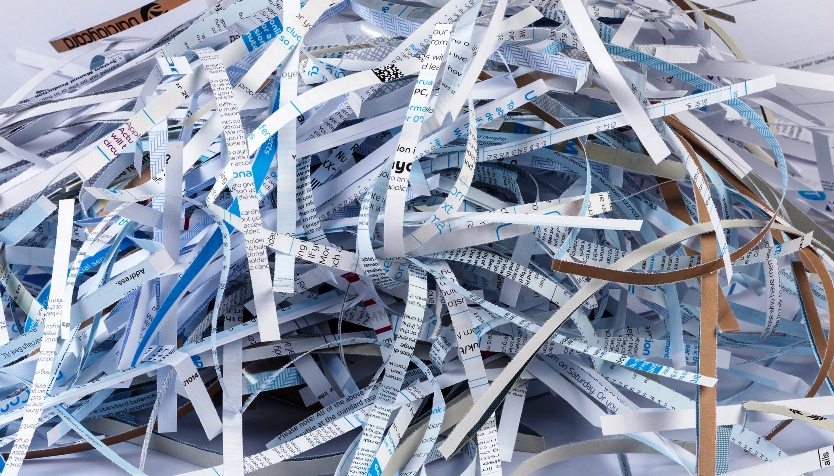
The question I get most often as a financial organizer / daily money manager (Personal Money Manager™) is “What do I need to keep and what do I need to shred?” Sometimes, anxiety over this question stops clients in their tracks—they’re afraid to do anything with their papers for fear that they will part with the wrong ones.
As with most questions, there’s more than one correct answer. But don’t let that discourage you!
Ask the Paperwork Experts
First, confer with your accountant and attorney to get paper retention guidelines related to their specific areas of expertise. After all, if you get into a fix with the tax authorities, your accountant would turn to you for the backup paperwork he or she needs to go to bat for you. So, I find it best to know before you file your taxes that you are following their guidelines—ready for if or when that dreaded day comes.
What Feels Right to You?
You also need to follow your gut. As clients know, in all I do as a financial organizer, the client is the ultimate decider. Given your storage capacity, what papers do you feel you must keep? I err on the conservative side—with both clients’ papers and my own home and business paperwork. I personally have ample storage and file cabinet capacity for my own financial and related paperwork (I am a financial organizer, after all). Some clients’ space availability may be more limited. Together, we come up with guidelines that work. I never want to get a call that a client is looking for a document that I suggested was no longer needed.
One additional thing to keep in mind when you decide to save a document: simply “keeping” it is not enough. Papers need to be stored in a way that it can be retrieved when needed. Having paperwork “around here somewhere” is no help when you need to get your hands on it pronto!
Below are some “keep vs. shred” guidelines.
Shred these:
- Papers you don't need that have your Social Security number, birth date, signature, account numbers, passwords or PINs. Also shred the back pages of catalogs with your name and address and those free mailing labels charities send you.
- Deposit slips, ATM, and credit card receipts after you receive monthly statements in which they appear.
- Medical bills and explanation of benefits (EOB’s) once payment has been resolved and after you have retrieved any important information they contain about medical procedures, hospitalizations, providers, and dates of service. If you deduct medical expenses on your taxes, are audited, and won’t be able to retrieve this information online, keep all EOB’s and paid bills associated with deducted medical expenses. (And a copy of your calendar showing medical appointments.)
- Preapproved credit card applications and so-called “courtesy checks”. Call your credit card company and insist they discontinue sending them! Shred expired and replaced picture ID’s such as driver’s license and passport unless they can still function as a back-up ID for you. Shred paycheck stubs after you receive your W-2 at year end.
- Monthly retirement and investment account statements only after you receive the annual statement for the entire year. Keep year end statements indefinitely as the tax statements do not reflect activity and year end balances.
- Utility bills for comparison purposes, but only for one year (at most) if they don’t impact your taxes. Otherwise, keep 1 to 3 months of bills and shred the rest.
Keep, don’t shred:
- Bank statements and canceled checks (or scans) for 1 to 3 years, depending on your accountant’s advice. Keep images of checks that back up your tax returns (deductions and tax payments) for 7 years after filing, which means 8 years for most of us. Keep tax returns indefinitely if you have the space. Seniors should keep statements for 5 years for a potential Medicaid application.
- Papers and checks related to a home purchase or sale, or improvements, and contributions made to retirement funds. Keep these indefinitely along with original Social Security cards, birth certificates, mortgage paperwork, deeds, wills, and debt pay-off documentation. Receipts printed on thermal paper deteriorate over time so best to copy or scan them for long-term storage.
What’s the next step?
See if your community holds “shredding events,” and / or purchase a cross-cut or micro-cut shredder, for the best security (and make sure to use it!). If your paper-organizing challenges seem daunting, contact Personal Money Manager™ to get them under control.
-----------------------------------------------------------------------------------------------------------------
Photo Credit: ID 64641537 © Williammacgregor | Dreamstime.com
